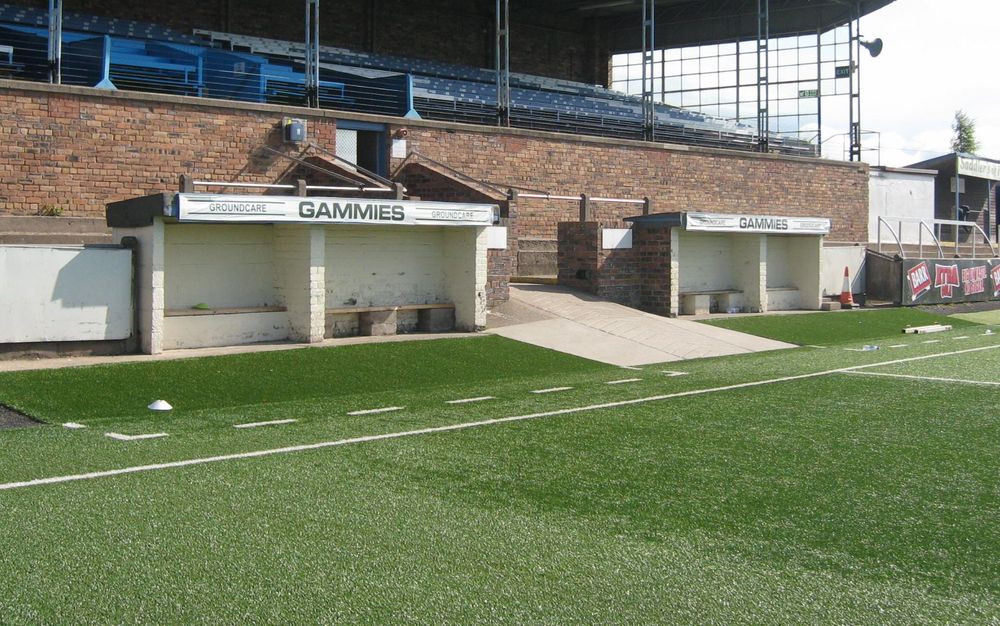
During Baldock Town`s relatively brief spell in the Southern League between 1987 and 2001, their best years came under the stewardship of joint bosses in Gary Roberts and Steve Cook.
Roberts` playing career began in non-League football with Wembley before being signed by Brentford in 1980.
Capped by Wales at under-21 level, he went on to enjoy a 215-game, 78-goal career with Brentford that at one point saw a move to Derby County agreed, until a medical showed he’d played an entire season with a fractured ankle!
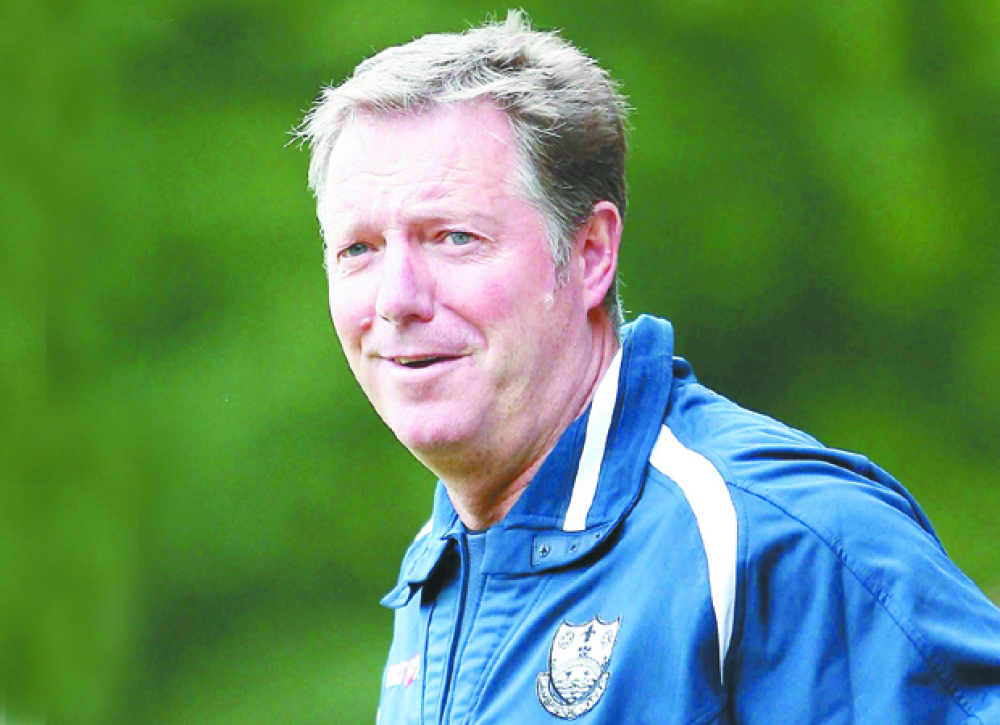
After dropping back into non-League with Barnet, Maidstone United, Welling United, Stevenage Borough, Hitchin Town, Baldock Town twice, Bishop`s Stortford, Hitchin Town and Braintree Town, Roberts (pictured) took over as joint/player-manager of his adopted home-town club Baldock with Steve Cook in November 1997.
After Baldock’s closure in the summer of 2001, the pair then took St Albans City to the top of the Isthmian Premier Division before Roberts was sacked in December 2002 as ownership politics raged at Clarence Park.
He landed the Cambridge City job a fortnight later and remarkably, remained in charge at Milton Road until 2016, flitting between the Southern League and the Conference South.
Steve Cook was a midfield terrier who battled back from a badly broken leg which kept him out of the game for eleven months until March 1997.
He started his playing days with Stotfold, then members of the United Counties League, where his performances began to attract bigger clubs.
Eventually, he joined Stevenage Borough and helped them on their early rise through the non-League Pyramid from the Isthmian League First Division to the Premier before moving to Baldock in 1993/94 – the season before Boro won promotion to the Conference.
After his injury, he recovered to return to the Baldock side in March 1997 and the following season saw him be a virtual ever-present in the team and won the player of the year award.
After Roberts and Cook joined St Albans City following Baldock`s sad demise in June 2001, the pair managed the Saints on a joint basis until December 2002 when Roberts had a `difference of opinion` with then-chairman John Gibson and left, with Cook being handed sole responsibility at Clarence Park.
In 2004, Cook took over the reins at one of his former clubs, UCL side Stotfold but he left Roker Park after just one season for then-Southern League Division One East side Boreham Wood.
He led Wood to the title in his first season in charge, but they were placed back in the Isthmian League Premier Division and Cook`s side struggled and after finishing 19th out of 22 in 2007/08, Cook left and was replaced by Ian Allinson, whose success at Meadow Park has been well documented.
Defender Bill Roffey started his career as an apprentice with Crystal Palace in 1970 but had to wait two years to make his first-team debut for the Eagles and ended up with 27 games to his name before transferring to Leyton Orient in October 1973.
He went on to become a `legend` at Brisbane Road, making 385 appearances and scoring 9 goals, including one in the FA Cup against Fulham from 35 yards which has gone down in history as one of the best goals seen at the old ground.
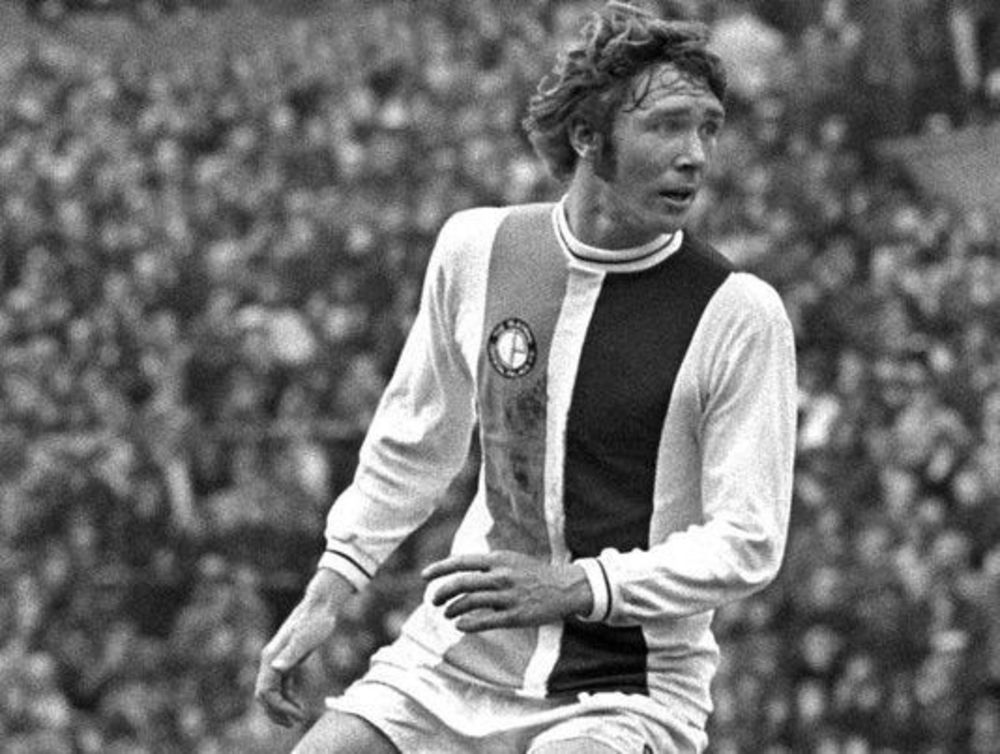
He eventually moved to Millwall in August 1984 and played 52 times before being released in the summer of 1986.
He had a spell out of the game until being persuaded back briefly to play for Barnet in the Conference in October 1988.
He then spent three years in Portugal playing for Lexoes before giving up full-time football at the end of the 1990/91 season at the age of 36.
Former Orient team-mate Tommy Taylor asked him to help him out at Southern League Southern Division side Margate with another ex-Orient favourite, striker Peter Kitchen, joining at the same time.
Roffey played 36 times for Gate in 1991/92 and was named player of the year but, despite that, he moved to league rivals Canterbury City in the summer of 1992 and in March 1994, took over as player-manager at the Kingsmead Stadium.
However, he left five months later as Canterbury finished third-from-bottom and he returned to Margate as manager without intending to play on at nearly 40.
But in the end, he made 35 appearances in 1994/95 and resigned at the end of the campaign.
In the summer of 1995 Roffey moved to another league rival, Tonbridge, where he initially worked as assistant-manager alongside Phil Emblem.
However, during the season, Roffey replaced Emblem as manager and also made playing appearances, mainly as a substitute at the age of 41.
He continued to serve Tonbridge as manager until October 1997.
Belfast born Tim Kelly joined the RAF as a teenager and by 1927 was stationed at Henlow, Bedfordshire, playing for the station team in the South Midlands League.
He was picked as an inside forward for the RAF XI in 1928, and in 1929/30 he won two Irish Amateur international caps against Scotland and England, scoring in the latter match.
At the end of that season, he helped RAF Henlow to beat Bedford Town 1-0 in the final of the Beds Premier Cup.
Soon afterwards he turned professional with Fulham, although he made only one Football League appearance there, and by the latter 1930s he was appearing for Luton-based amateur side Vauxhall Motors, where he also worked.
In the immediate post-war years, having retired as a player, he coached the Vauxhall club and in 1951 he moved to Luton Town as a part-time coach a year later became assistant manager during one of the club’s most successful periods which culminated in promotion to the old First Division in 1955.
In April that year he succeeded Fred Stansfield as manager of Southern League side Bedford Town and achieved an immediate effect as the team won 9 of their last 12 matches.
He cleared out most of Stansfield’s squad during the summer and signed virtually a new team and undoubtedly his biggest coup was to persuade four key members of the Headington United side that had won the Southern League title in 1953 to join Bedford - Bob Craig, Johnny Crichton, Ron Steel and Harry Yates.
Terry Pope, Des Quinn and Felix Staroscik were three more Kelly signings who were to contribute greatly over the next few seasons.
His first full season began with only one defeat by the last week of October and continued with the best FA Cup run in the club’s history in 1955/56, including the first defeat of a Football League club when Watford were beaten at the Eyrie in the Second Round.
It ended with the two battles against Arsenal - a 2-2 draw at Highbury and a 2-1 defeat but only after extra-time in the replay after Bedford had led until 6 minutes from the end of normal time.
Without heavy cup commitments the final league position, fourth, might have been bettered but the fruits of the best season in the club’s history to date were seen for the rest of Kelly’s time as manager; tangibly with the new main stand opened in December 1956, and on the field with better quality players receiving, presumably, top wages at a time when the maximum wage was in force in professional football.
In the next two seasons Kelly, with his old Luton colleague Dougie Gardiner as right-hand man, took the team to successive runners-up trophies, with another good run in the FA Cup in 1956/7 when Norwich City were beaten, and in 1957/8 they were denied the title only by a series of lapses at home.
In 1958/9 Kelly finally achieved his ambition when the championship was secured in a play-off at Hereford United, and his bold move to sign Len Duquemin and Colin Brittan from Tottenham Hotspur in November, after a disappointing FA Cup defeat by Wisbech Town, turned the season round.
However, Hastings United made him a better offer that summer and he left amid general surprise and later took Duquemin and a couple of other players with him but may have regretted the move because his new club were relegated in 1961 and crashed to the very bottom of the First Division the following year, when his contract was not renewed.
He was quoted as saying that he had a total budget for wages of only £58 a week and had faced an impossible task.
He returned to his old job at Vauxhall’s, from where he was summoned back to Bedford as caretaker-manager in December 1963 between the departure of Reg Smith and the arrival of Basil Hayward, and although it is unclear how much personal part he played in the 2-1 FA Cup success at Newcastle United in January 1964, the press loved his party trick (revived from the 1955/6 run) of putting out titbits for leprechauns beside the goalposts as described to David Coleman on BBC`s Sportsview before the Carlisle United cup tie!
He returned to Vauxhall’s when the cup run ended against Carlisle and remained there until he retired.
He died in Luton in May 1975.
Although Roy Paul`s period as a manager in the Southern League was a brief one, his service as a player with Worcester City deserves him appearing in this piece.
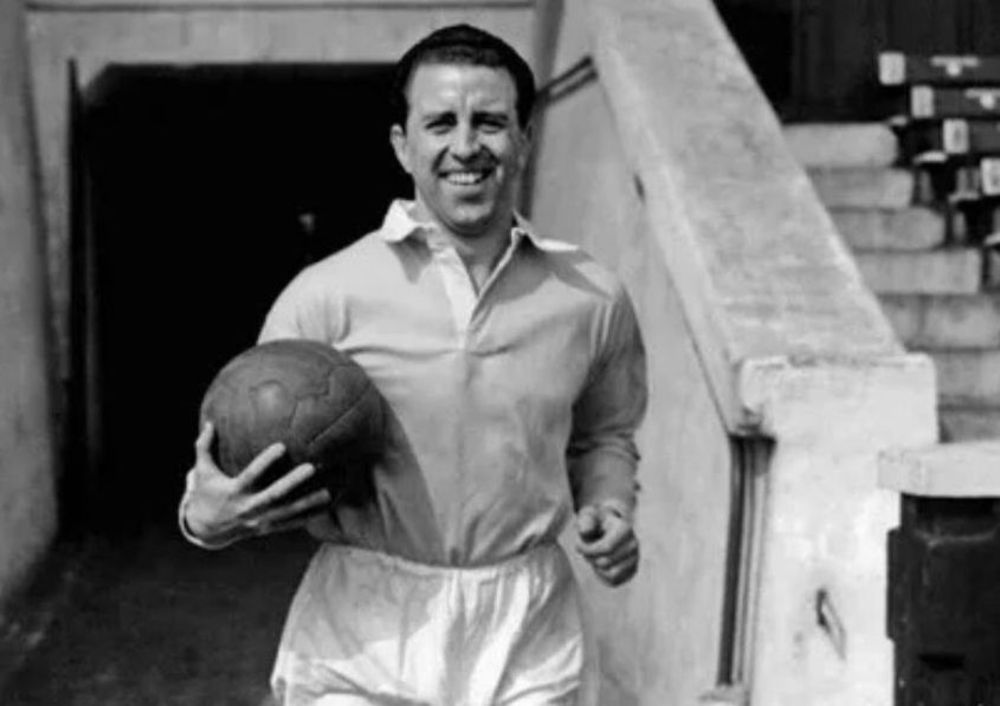
Central defender Paul (pictured) gained the first 9 of his 33 caps while at the Vetch Field after moving to Swansea Town from Ton Pentre in October 1938.
He was an important figure in the Swans` 1948/49 Third Division (South) title triumph and netted 14 goals in 160 League games prior to joining Manchester City in July 1950.
He helped City regain top-flight status in 1950/51 and skippered City to two consecutive FA Cup finals, including their 1956 Wembley success.
He totalled 270 games for City, with 9 goals before he moved to Southern League side Worcester in July 1957, only a year after lifting that FA Cup for City.
He made 124 appearances for Worcester, scoring 3 goals, including one in the legendary 2-1 success over then-Second Division Liverpool in 1959 and the 5-2 victory over Millwall in the previous round.
Worcester paid him £20 a week and loaned him a car and he also had a brief three-month spell as City's player-manager before moving to Welsh League side Brecon Corinthians in 1960.
Garw Athletic, he then worked as a lorry driver and remained in South Wales until his death in May 2002 at the age of 82.
Forward Zema Abbey (pictured) began his playing days in the South Midlands League with Arlesey Town before stepping up into the Southern League with Baldock Town in 1998.
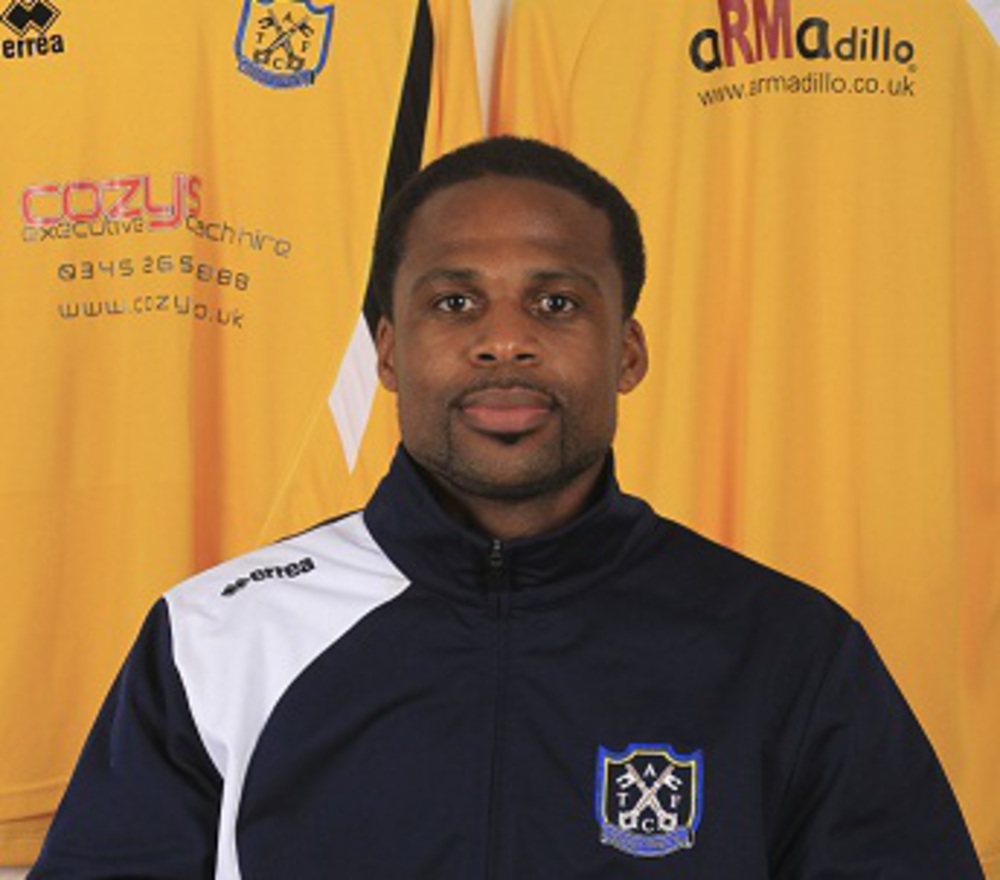
He made another step up the non-League Pyramid by joining Isthmian League Premier Division side Hitchin Town in 1999.
His form soon alerted the scouts, and it was League Two Cambridge United who won the race to sign the then-23-year-old in February 2000.
He returned to Top Field on loan and then began to establish himself in the Cambridge team, netting 5 goals in 22 games.
And in December 2000, Abbey signed for First Division side Norwich City for a fee of £350,000.
The 6`3” striker, unfortunately, suffered a knee injury which ruled him out of the majority of the 2001/02 season after he had made just 7 appearances scoring once.
He returned to action during the autumn of 2002, primarily as substitute and spared City's blushes when he scored the only goal of the game in the 90th minute in the FA Cup Fourth Round clash at home to Conference side Dagenham & Redbridge and finished the 2002/03 season with 6 goals to his credit.
In only the third game of the 2003/04 season, Abbey injured his other knee at Sheffield United and was ruled out of the remainder of the season.
Although he didn't play again and was out of contract at the end of the season, Norwich offered Abbey a short-term contract in which to prove his fitness and in August 2004, then-Norwich manager Nigel Worthington agreed that he could join Boston United on loan to gain match fitness and experience.
However, when he returned from loan, Norwich revealed he wouldn`t be offered new terms.
After his release from the Canaries, Abbey joined Wycombe Wanderers on a one-month contract to see if he met their needs and in November 2004, he signed a similar deal with Bradford City until January.
He was released by the Bantams on 20th January 2005 and joined Torquay United in March 2005 but was released two months later following the Gulls relegation to League Two.
In the summer of 2005, Abbey signed for Forest Green Rovers on non-contract terms and made 26 appearances, scoring just 2 goals, and was released by Rovers at the end of the 2005/06 season.
He then embarked on a spell with Conference North side Kettering Town but was released by the Poppies in November 2006 and signed for Barton Rovers in January 2007.
He moved to Halesowen Town in November 2007 made 42 appearances for the Yeltz in the Southern League, scoring 8 times.
He then moved on to play for Southern League Division One Midland side Arlesey in the 2009/10 season where he was made player/assistant Manager.
He was promoted to manager in late June 2011 while previous manager, Gary King, who led the team to become champions of the Southern League Division One Central and victory in the Beds Senior Cup in 2010/11, resumed his role as director of football and Adam Turner became Abbey’s assistant.
Abbey recruited his brother Nathan, another former professional goalkeeper, as his assistant and the pair led the club to 18th in their first season in charge before enjoying a successful 2012/13 campaign, which saw them finish sixth and win the Southern League Cup.
They made a solid start to the 2013/14 campaign and were ninth as of 8th November with 19 points from 13 games. However, the duo decided to take on a new challenge and joined league rivals St Neots Town, who were second-from-bottom of the division with just two wins all term.
Zema Abbey took up the role of joint manager alongside Gary King, while Nathan Abbey worked as their assistant.
He returned to Arlesey as joint-manager alongside his brother in February 2015, but they left the club at the end of the 2017/18 season.
Roy Little was a tough-tackling left-back who played in successive FA Cup finals for Manchester City, making up for defeat by Newcastle United in 1955 by helping to beat Birmingham City a year later.
Although renowned for being tough, he was a fair competitor and an accomplished all-round performer, in particular a precise passer.
He signed for City from amateur side Greenwood Victoria in 1949 and made his senior bow in the 7-0 FA Cup drubbing of Swindon Town at Maine Road in January 1953.
During the next season, he claimed a first-team shirt on a regular basis and kept it for six seasons until replaced by Cliff Sear in 1957.
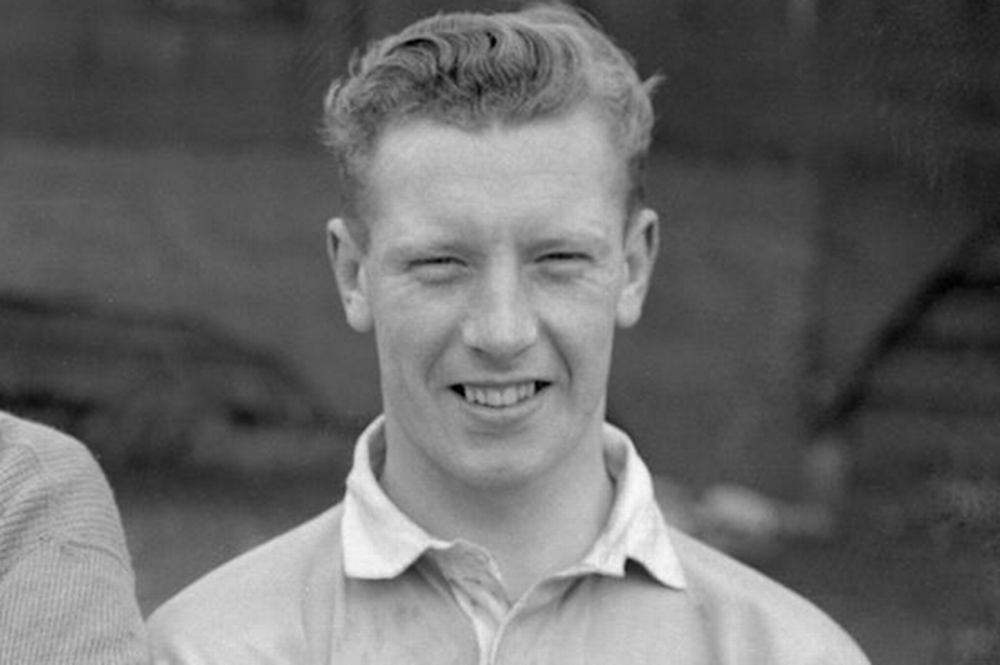
Little's (pictured) part in the 1955 final began traumatically when he stood rooted to the goalline as a Jackie Milburn header flashed past him after only 45 seconds!
City lost 3-1, the same score by which they beat Birmingham in 1956, climaxing an uplifting Football League campaign in which they had finished fourth in the First Division, with the consistent left-back ever-present.
In October 1958, having lost his place to the younger Sear after 187 outings for the Maine Road outfit, he was sold for £4,850 to Brighton & Hove Albion, newly promoted to the Second Division.
There followed three seasons at the Goldstone Ground, making 83 appearances, then two with then-Third Division Crystal Palace before he joined Southern League Division One side Dover as player-manager in 1964.
Although league form at Crabble was disappointing, with finishes of only 14th and 15th in his two seasons in charge, Little did play a major role in developing a youth structure which paid off almost immediately with two players being handed `professional` terms in 1965.
Also, whilst in charge of Dover he signed players such as former Nottingham Forest FA Cup hero Stewart Imlach, who won 4 caps for Scotland, and another Scotsman in Ian McNeill, who went on to earn success as a manager himself, taking Wigan Athletic into the Football League.
After leaving Dover in 1966, Little spent a year or so in New Zealand playing for Christchurch City.
And he even turned out for a New Zealand XI in a friendly against Hong Kong side Sing Tao in Auckland which the hosts lost 8-6!
He returned to Manchester at the end of his career and looked after the university’s sports grounds and he still has a trophy named after him.
Little died in January 2015, aged 83.

Most clubs are looking for volunteers. Find out more on the button below:
www.PitchingInVolunteers.co.ukAll the news and results in one place.
REGISTER